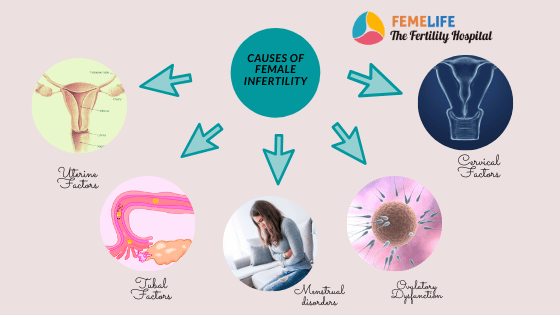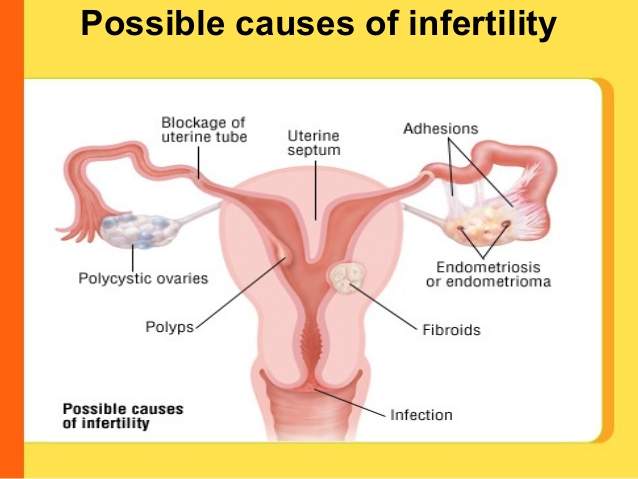Female Infertility: Causes
What's up Queens!
Causes of Female Infertility: Fertility Factors
Have you been trying to get pregnant for a while now and having trouble? Don't worry, you're not alone. Infertility affects many women and can be caused by a variety of factors. Understanding the causes can help you and your partner find the right treatment to help you conceive.

To avoid complications in the future, it’s wise to detect the signs of infertility. Here is a
Early detection is key when it comes to infertility. If you're experiencing any of the following symptoms, it's important to talk to your doctor:
- Irregular or absent periods
- Painful periods
- Abnormal vaginal bleeding
- Painful intercourse
- Unexplained weight gain or loss
- Changes in sex drive

Possible Causes of Infertility Problems in Women Today
There are many potential causes of infertility in women. Some of the most common causes include:
- Polycystic ovary syndrome (PCOS)
- Endometriosis
- Fibroids
- Scar tissue from surgery or infection
- Age
- Weight
- Exposure to environmental toxins
- Smoking

Diagnostic
If you're experiencing infertility, your doctor will likely run a series of diagnostic tests to help determine the cause. These may include:
- Blood tests to check hormone levels
- Ultrasound to check the reproductive organs
- Laparoscopy to look for scar tissue or other abnormalities
- Hysteroscopy to check the uterus and fallopian tubes
- Semen analysis of your partner

Understanding Infertility and What It Is
It's important to understand what infertility is and how it affects your ability to conceive. Infertility is defined as the inability to conceive after a year of trying for women under 35, or six months for women over 35. It can be caused by a variety of factors, including hormonal imbalances, reproductive abnormalities, and lifestyle factors.

Importance of Early Detection and Timely Treatment
Early detection is important when it comes to infertility, as it can allow for timely treatment and intervention. Treatment options may include:
- Fertility drugs to stimulate ovulation
- Surgery to remove scar tissue or abnormalities
- Intrauterine insemination (IUI) to introduce sperm directly into the uterus
- In vitro fertilization (IVF) to fertilize eggs in a lab and transfer them to the uterus

Risk Factors for Female Infertility
There are several risk factors that can increase a woman's likelihood of experiencing infertility, including:
- Age
- Smoking
- Excessive alcohol consumption
- Weight imbalances
- Exposure to environmental toxins
- History of sexually transmitted infections (STIs)
- Irregular menstrual cycles

Awareness and Prevention
While not all cases of infertility can be prevented, there are several lifestyle changes you can make to help reduce your risk:
- Quit smoking
- Maintain a healthy weight
- Minimize alcohol consumption
- Avoid exposure to environmental toxins
- Practice safe sex to reduce risk of STIs
- Identify and manage underlying health conditions

Support and Resources for Infertility
Infertility can be a stressful and emotional experience. It's important to have a support system in place to help you through the ups and downs. There are a variety of resources available to women struggling with infertility, including:
- Support groups
- Online forums and communities
- Counseling services
- Infertility clinics and specialists
Remember, you are not alone in your infertility journey. With the right treatment plan and support, you can increase your chances of conceiving and starting a family.
Komentar
Posting Komentar